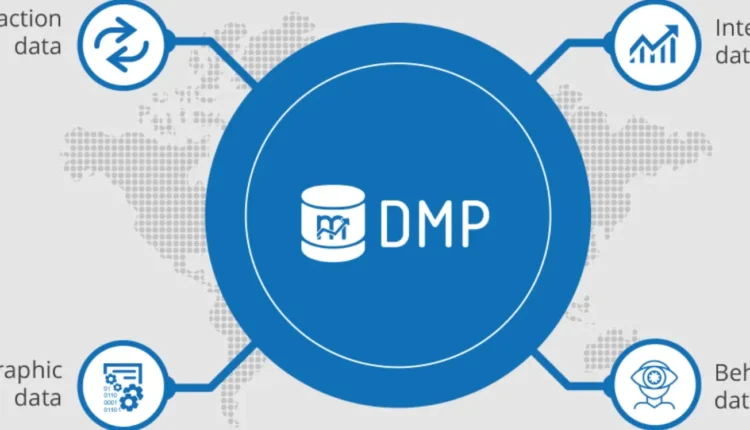In the digital age, data is a powerful asset for businesses. With the right tools, companies can harness this data to make informed decisions, improve customer experiences, and drive growth. One of the essential tools in this data-driven landscape are Data Management Platforms (DMPs). This article will explain what a DMP is, how it works, and why it’s crucial for modern businesses.
What are Data Management Platforms (DMP)?
A Data Management Platform (DMP) is a technology system used to collect, organize, and manage data from various sources. It serves as a central hub where businesses can gather data, analyze it, and use it to drive marketing and advertising strategies. The goal of a DMP is to help companies make better use of their data to target the right audiences and improve their overall performance.
How Do Data Management Platforms Work?
A DMP works by integrating data from multiple sources and making it accessible for analysis and decision-making. Here’s a breakdown of how it functions:
- Data Collection: A DMP collects data from various sources, such as websites, mobile apps, social media, CRM systems, and offline channels. This data can include user behaviors, demographics, and purchase history.
- Data Integration: Once collected, the data is integrated into the DMP. The platform standardizes and organizes the data, making it easier to analyze. This integration helps create a unified view of the audience.
- Data Analysis: The DMP uses analytical tools to process and analyze the data. Businesses can segment their audience, identify patterns, and gain insights into customer behaviors and preferences.
- Audience Targeting: With the insights gained from data analysis, businesses can create detailed audience segments. These segments help in targeting specific groups with personalized marketing campaigns.
- Campaign Management: The DMP integrates with advertising platforms to deliver targeted ads to the right audience segments. This ensures that marketing efforts are more effective and efficient.
- Reporting and Optimization: The DMP provides reports and performance metrics, allowing businesses to measure the success of their campaigns. These insights help in optimizing future marketing strategies.
Benefits of Using a Data Management Platform
A Data Management Platform offers several advantages for businesses:
- Improved Targeting: By using a DMP, businesses can create precise audience segments based on detailed data. This leads to more effective and personalized marketing campaigns.
- Enhanced Customer Insights: A DMP provides valuable insights into customer behaviors and preferences. This helps businesses understand their audience better and tailor their strategies accordingly.
- Increased Efficiency: Centralizing data management in a DMP streamlines processes and reduces the time spent on data integration and analysis. This leads to more efficient marketing operations.
- Better ROI: Targeted advertising and personalized marketing efforts often result in higher engagement rates and conversions, improving the return on investment (ROI) for marketing campaigns.
- Data Privacy and Compliance: Modern DMPs include features to manage data privacy and comply with regulations like GDPR. This helps businesses ensure that they handle data responsibly and legally.
Key Features of a Data Management Platform
When choosing a DMP, it’s important to look for certain features:
- Data Integration: The ability to integrate data from various sources, including online and offline channels, is crucial for creating a comprehensive view of the audience.
- Advanced Analytics: A DMP should offer advanced analytical tools to process and interpret data effectively. This includes capabilities for segmentation, predictive analytics, and reporting.
- Audience Segmentation: The platform should allow for detailed audience segmentation based on various criteria, such as demographics, behaviors, and interests.
- Integration with Ad Platforms: Seamless integration with advertising platforms is indeed essential for delivering targeted ads and optimizing campaign performance.
- Data Privacy Features: Ensure that the DMP has robust data privacy and compliance features in order to protect user data and adhere to legal regulations.
The Challenges Associated
While DMPs offer many benefits, they also come with challenges:
- Data Quality: The effectiveness of a DMP depends on the quality of the data it collects. Inaccurate or incomplete data can lead to poor insights and also ineffective targeting.
- Complexity: Implementing and managing a DMP can be complex, especially for businesses without a dedicated data team. It requires careful planning and expertise.
- Cost: DMPs can be expensive, particularly for smaller businesses. The cost of implementation and maintenance should be considered when evaluating a DMP.
- Data Privacy Concerns: Handling large amounts of data indeed raises privacy concerns. Businesses must ensure they comply with data protection regulations and also address any potential risks.
Conclusion

Data Management Platforms indeed play a crucial role in the digital marketing landscape by helping businesses collect, organize, and analyze data more effectively. By leveraging a DMP, companies can enhance their targeting, gain valuable insights, and also improve their marketing strategies. Despite some challenges, the benefits of using a DMP make it a valuable tool for businesses looking to optimize their data-driven marketing efforts and drive growth.
Frequently Asked Questions (FAQs)
1. What is a Data Management Platform (DMP)?
A Data Management Platform (DMP) is a system used to collect, organize, and analyze data from various sources in order to enhance marketing and advertising strategies.
2. How does a DMP improve audience targeting?
A DMP improves audience targeting by analyzing data in order to create detailed audience segments, allowing for more personalized and effective marketing campaigns.
3. What are the key features to look for in a DMP?
Key features include data integration, advanced analytics, audience segmentation, integration with ad platforms, as well as data privacy capabilities.
4. What challenges are associated with using a DMP?
Challenges include ensuring data quality, managing complexity, handling costs, and also addressing data privacy concerns.


